17 February 2025
Esports events are like a rock concert, a World Cup final, and a tech show all rolled into one. They’re loud, flashy, energetic, and meticulously crafted. But have you ever stopped to wonder how these electrifying spectacles come together? It’s not just about booking a venue and telling players to show up. Oh no, there’s a whole world of moving parts behind the curtain that makes it all happen. Let’s dive deep into the nitty-gritty of how esports events are organized—you might come away with a renewed appreciation for the hard work that goes into your favorite tournaments.
The Blueprint: Planning an Esports Event
Every awe-inspiring esports event begins with a framework—it’s the same as constructing a skyscraper. You can’t start hanging window panes before the foundations are laid. From the ground up, the organizers need to address several key questions:1. Who’s Playing?
Organizers first decide which game will be the focus of the event (think League of Legends, CS:GO, Valorant, or Dota 2) and what kind of competition format they’re looking at—single elimination, double elimination, round-robin, or something else entirely.
2. Where Will It Happen?
Venue selection is crucial. Are we talking about a massive arena like The O2 or something cozier for an online-only affair? The venue must fit the vibe of the game, the size of the audience, and, of course, the needs of the players. After all, these athletes aren’t just clicking buttons—they’re strategizing at lightning speed, so their setup has to be pitch-perfect.
3. What’s the Budget?
Let’s not kid ourselves—organizing an esports event isn’t cheap. Sponsors, ticket sales, and merchandise all play a role in balancing the budget. But more on finances in a bit (spoiler alert: money talks).
4. What’s the Purpose?
Is this event part of a regular league season? A one-off championship? A promotional tour for a new game? Your objectives will shape everything—from the marketing strategy to the gameplay format.
Rounding Up the Players and Teams
Here comes the fun part: gathering the gladiators for the digital battleground. At this stage, organizers send out invitations to top-tier teams or host qualifiers where hopefuls from around the world fight for their spot. Qualifiers are an event in themselves, especially for massive events like The International (Dota 2) or the League of Legends World Championship.But recruiting players isn’t as easy as shooting someone a DM on Discord. Contracts, visas (for international competitions), and scheduling all have to be ironed out. Travel arrangements and accommodations are also key—a poorly planned flight or lackluster player hotel could lead to cranky competitors, and no one wants that.
The Tech Arsenal: Setting Up the Stage (Literally)
If you think the players are the stars of the show, wait till you meet the tech crew. These behind-the-scenes heroes make sure that every pixel on the screen is crisp, every sound is crystal clear, and every match is streamed without a hitch. Here’s a quick rundown of what they handle:1. Stage Design and Setup
Have you ever seen an esports stage? It’s not just a table and chairs—it’s a sci-fi masterpiece. Neon lighting, massive LED screens, fog machines, pyrotechnics—the whole works. It’s all about creating an atmosphere that screams “EPIC!”
2. Hardware Configuration
PCs and gaming peripherals are provided by sponsors or organizers to ensure fairness across the board. No “Oh, my monitor lagged” excuses here! The equipment needs to be calibrated to perfection.
3. Internet Infrastructure
A LAN setup is the norm for in-person events because no one wants a lag spike deciding a million-dollar match. For online events, world-class servers and spotless internet connections are non-negotiable.
4. Broadcast Infrastructure
Shout out to the production crew—camera setups, commentators’ desks, and streaming software all have to be seamlessly integrated. Imagine the chaos if an audience of millions suddenly saw a “Connection Lost” error. Nope, not happening on their watch.
Hype, Hype, and More Hype: Marketing and Promotion
You can have the best teams, the flashiest stage, and flawless technology—but if no one knows your event is happening, what’s the point? This is where marketing comes in, and let me tell you, it’s no small feat.Social Media Buzz
Event organizers practically live on Twitter, Instagram, YouTube, and TikTok leading up to game day. They’re teasing matchups, hyping rivalries, and sharing exclusive behind-the-scenes content to keep fans engaged. Have you ever fallen down a rabbit hole of “player interviews” or “team predictions” videos? Yeah, that’s all part of the plan.Partnerships and Sponsors
Esports events don’t survive without sponsors. Companies like Intel, Red Bull, Alienware, and even luxury brands like Louis Vuitton have sponsored major tournaments. They don’t just fund the event—they also create co-branded content and sometimes even exclusive in-game goodies to get fans involved.Ticket Sales and Merchandise
Good old-fashioned sales also play a role. Early bird specials, VIP passes, limited-edition merch—these are all strategies to maximize revenue while creating a sense of exclusivity.The Game Day Mayhem
When game day finally rolls around, you’d think the hard part is over, right? Wrong. This is when all that preparation goes from theory to practice, and literally anything can go wrong. And I mean anything. Here’s a sneak peek into the chaos that unfolds:1. Player Issues
Sometimes players get sick, are delayed due to travel logistics, or simply need more time to get comfortable. There’s always a support team on standby to troubleshoot.
2. Tech Glitches
Even with months of prep, tech is unpredictable. A server might crash, or a stream might go offline for a few seconds. The tech team is on high alert all the time.
3. Broadcasting Challenges
The show must go on, but live broadcasting is no joke. Camera angles, in-game replays, and coordinating with commentators—it’s like juggling a hundred flaming torches while riding a unicycle.
The Fans: The Heart and Soul of Esports
Let’s not forget the fans—they’re the lifeblood of any esports event. Whether they’re filling up an arena or spamming emotes in Twitch chat, their energy is what makes these events truly magical. Organizers have entire teams dedicated to fan engagement: autograph sessions, cosplay contests, and even interactive activities like VR gaming booths. It’s all about creating an unforgettable experience.Wrapping It All Up: Post-Event Shenanigans
Once the grand finale is over and the winners are crowned, the work doesn’t stop—it simply shifts focus. Organizers will now:- Analyze feedback from fans, players, and sponsors to figure out what went well and what didn’t.
- Publish highlight reels and behind-the-scenes footage.
- Pay out prize money (yep, the winners don’t just walk away with a giant cardboard check).
- Start planning for the next event, because in esports, the grind never stops.

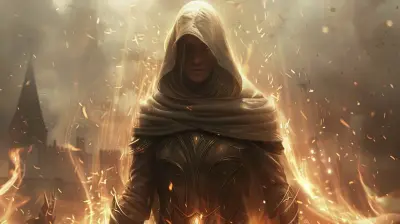
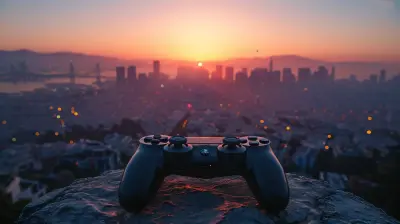
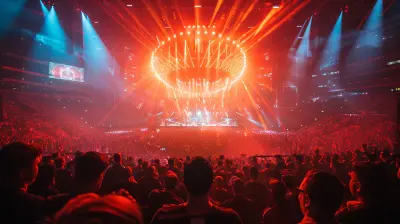
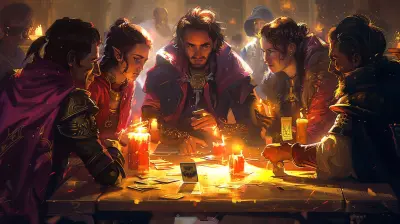

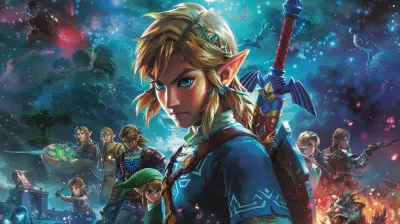
Mandy Acevedo
Great insights! It's amazing to see the effort that goes into organizing esports events. From planning to execution, every detail matters. Your behind-the-scenes peek makes me appreciate these tournaments even more—can't wait for the next showdown! 🎮✨
March 2, 2025 at 5:04 AM